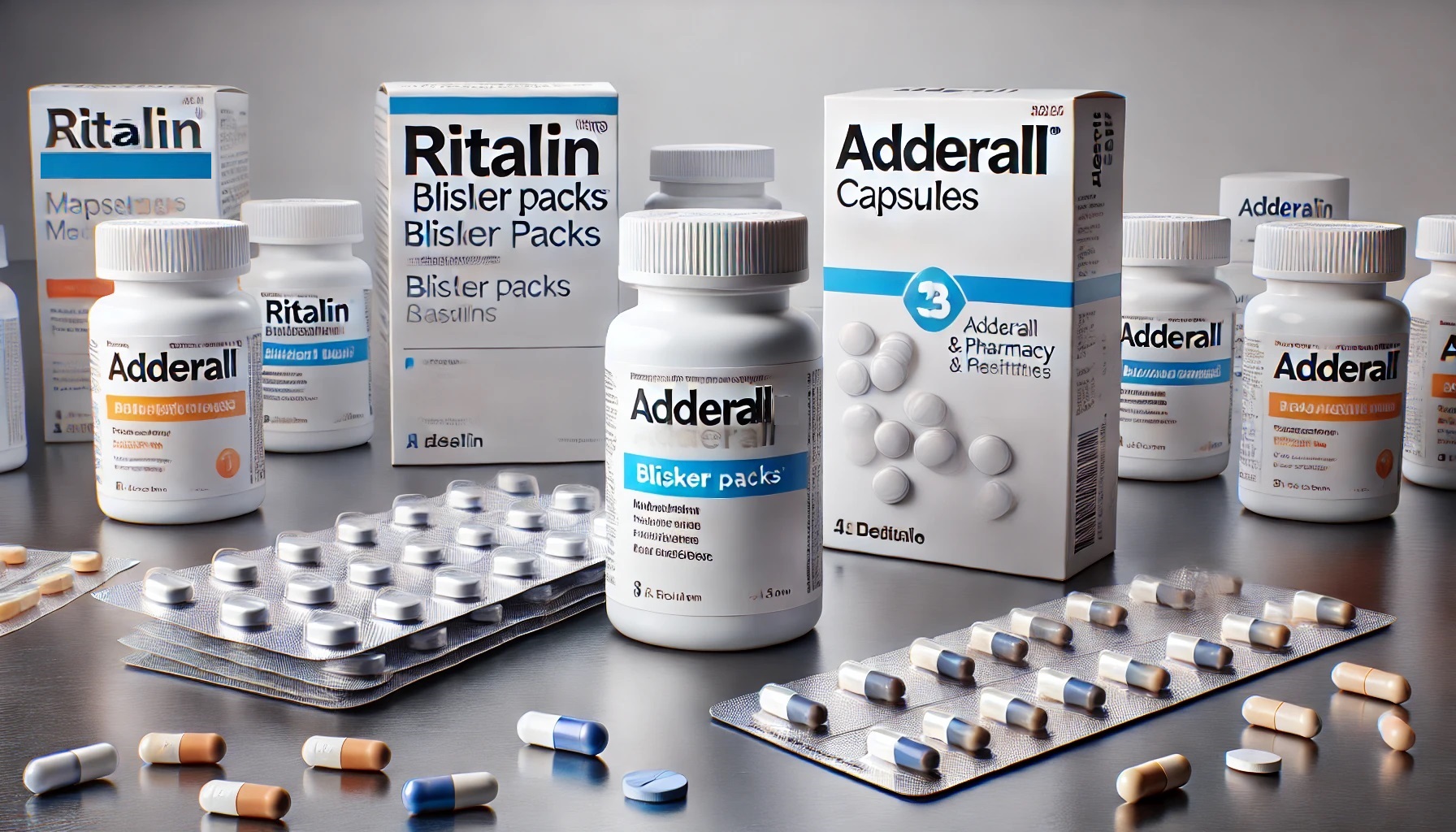Health Notice: This article was written using the Consensus AI Academic Search Engine. It is intended solely for informational purposes and should not be considered medical advice. Always consult a licensed healthcare provider for diagnosis, treatment, or medical guidance. Please refer to the full Disclaimer at the end of this article.
Ritalin and Adderall are two of the most commonly prescribed medications for Attention-Deficit/Hyperactivity Disorder (ADHD). Both medications are central nervous system stimulants but differ in their chemical composition, efficacy, side effects, dosage, and cost. This article aims to provide a comprehensive comparison of Ritalin and Adderall based on recent research findings.
Differences in Composition and Mechanism
Ritalin (methylphenidate) and Adderall (a combination of dextroamphetamine and amphetamine salts) are both used to treat ADHD but have different active ingredients. Ritalin primarily affects dopamine and norepinephrine levels in the brain, while Adderall increases the release of these neurotransmitters and also inhibits their reuptake, making it generally more potent2 5.
Efficacy
Research indicates that both Ritalin and Adderall are effective in managing ADHD symptoms. However, Adderall has been found to have a longer half-life, which can minimize the loss of efficacy that occurs 4 to 5 hours after Ritalin ingestion2. In a study comparing the two drugs, Adderall was generally superior to Ritalin, particularly in the afternoon and early evening when the effects of Ritalin typically wear off2. This suggests that Adderall may be more effective for individuals who require longer-lasting symptom control.
Side Effects
Both medications have similar side effect profiles, including insomnia, decreased appetite, and potential cardiovascular effects. However, studies have shown that compliance and side effect rates are consistently higher for generic Adderall compared to generic Ritalin1 4. This could be due to the longer duration of action of Adderall, which may lead to fewer doses required throughout the day, thereby reducing the likelihood of missed doses and side effects associated with peak plasma levels.
Dosage
The dosage of Ritalin and Adderall varies depending on the individual’s needs and response to the medication. Ritalin is typically administered in multiple doses throughout the day, while Adderall can often be given once daily due to its longer duration of action2 5. For example, a study found that a 7.5 mg dose of Adderall twice a day produced effects comparable to a 17.5 mg dose of Ritalin twice a day, indicating that Adderall is approximately twice as potent as Ritalin2.
Cost
The cost of ADHD medications can be a significant factor in treatment decisions. According to a cost analysis, the average total annual expected cost per patient was $2,080 for Ritalin and $2,232 for Adderall, making Adderall the more expensive option among the evaluated pharmacotherapies3. However, the higher compliance rates and longer duration of action may justify the additional cost for some patients1 4.
Conclusion
Both Ritalin and Adderall are effective treatments for ADHD, but they differ in their composition, duration of action, side effects, dosage, and cost. Adderall’s longer half-life and higher potency may make it a more suitable option for individuals requiring extended symptom control, despite its higher cost. Clinicians should consider these factors when prescribing these medications to ensure optimal treatment outcomes for their patients.
Disclaimer
The content in this blog post was generated using Consensus, an AI-powered academic search engine, and is based on publicly available scientific literature. While we strive to provide accurate, up-to-date, and well-researched information, this content is intended for informational and educational purposes only.
It does not constitute medical advice, diagnosis, or treatment. Always consult a qualified healthcare professional before making decisions related to any medical condition, treatment, or medication.
The AI system’s analysis may not account for all perspectives, ongoing research, or individual circumstances, and should not replace professional expertise. Neither the blog publisher nor the developers of the Consensus AI tool are liable for any decisions or actions taken based on this content.
Use of this information is at your own risk. Where provided, citations link to original scientific studies for reference only—these should be reviewed independently and interpreted with the support of a qualified medical or research professional.
If you are experiencing a medical emergency, please seek immediate care from a healthcare provider or call emergency services.
